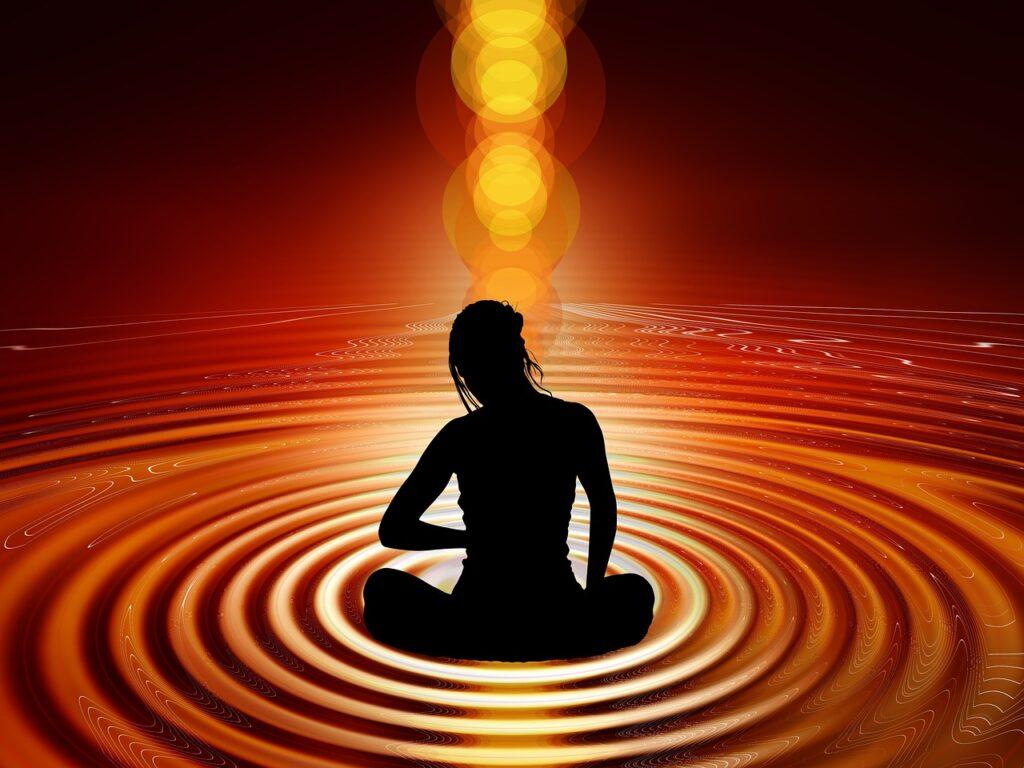
Alcohol consumption has a profound impact on our physical and mental well-being, relationships, and overall quality of life. Recognizing the necessity to quit drinking and making a resolute decision to do so is a crucial step towards achieving a healthier and more fulfilling existence. Frequently, individuals develop alcohol addiction during their teenage years. Some indulge in drinking to socialize or showcase a party-animal persona, while others turn to alcohol as a coping mechanism to alleviate anxiety and temporarily escape from life’s worries. However, it is essential to acknowledge that the world is replete with anxieties, and no one is immune to them. Attempting to evade these anxieties through alcohol or other addictions is ultimately futile.
Over time, addiction gains control and dominance over our lives, making it arduous to quit drinking even if we genuinely desire to do so. The mere thought of giving up alcohol can engender feelings of deprivation in the mind of an addict. Nevertheless, this desire to quit will not diminish unless it is confronted and consistently denied. Cultivating the willpower to say no can be accomplished through meditation, not on the pleasure derived from drinking, but on the adverse consequences it entails.
In the sacred scripture Bhagavad Gita (18.38), it is explained that our senses may experience momentary pleasure upon contact with sensory objects. However, gradually, the pleasure that initially resembled nectar transforms into poison. We may not desire to consume this poison, but we will inevitably endure the toxic aftermath of indulging in sensual gratification, which intensifies our entanglement in material existence and exacerbates our worldly sufferings. Therefore, it is imperative that we strive to resist succumbing to these addictive tendencies and learn to tolerate and reject sensual desires by contemplating their detrimental outcomes. This is the sole means by which we can weaken the power of such desires over us.
By recognizing the illusory nature of temporary pleasure derived from alcohol and other sensory indulgences, we can break free from their grip and embark on a path towards a more fulfilling life. Quitting drinking not only improves our physical health but also enhances our mental clarity and emotional well-being. It paves the way for stronger and more meaningful relationships, rebuilding trust and fostering genuine connections. Moreover, abstaining from alcohol leads to significant financial savings, allowing us to allocate resources towards endeavors that truly bring us fulfillment.
In conclusion, the decision to quit drinking is a pivotal and courageous step towards embracing a healthier and happier life. By persistently rejecting the allure of alcohol and other addictive substances, we can liberate ourselves from their harmful effects. Let us remember that true fulfillment and contentment lie in cultivating inner strength and resilience, rather than seeking temporary solace in external indulgences.
Benefits of Quitting Alcohol : The Path to Sobriety
#1 Improved Physical health
Quitting alcohol brings about a multitude of benefits, and one of the most notable advantages is the significant improvement in physical health. Alcohol consumption places a heavy burden on the liver, responsible for metabolizing and detoxifying alcohol. Prolonged and excessive drinking can lead to serious liver conditions such as alcoholic hepatitis, cirrhosis, and liver cancer. By quitting alcohol, you give your liver a chance to repair and regenerate, reducing the risk of these life-threatening diseases.
Alcohol abuse has been linked to high blood pressure, irregular heart rhythms, and an increased risk of heart disease and stroke. By quitting drinking, you can lower your blood pressure, stabilize heart rhythms, and reduce the strain on your cardiovascular system. These improvements contribute to a healthier heart and a decreased risk of heart-related complications.

Moreover, alcoholic beverages are often high in calories and offer little to no nutritional value. Quitting alcohol eliminates these empty calories from your diet, making it easier to maintain a healthy weight or lose excess pounds. Additionally, alcohol can increase appetite and lead to poor food choices, further contributing to weight gain. By quitting alcohol, you regain control over your eating habits and promote a healthier body weight.
Alcohol weakens the immune system, making you more susceptible to infections, illnesses, and prolonged recovery periods. By abstaining from alcohol, you give your immune system a chance to strengthen and function optimally. This leads to a reduced risk of infections and a faster healing process when you do get sick.
While alcohol may initially make you feel drowsy and help you fall asleep faster, it disrupts the quality of your sleep. Alcohol interferes with the sleep cycle, leading to fragmented and restless sleep patterns. By quitting drinking, you can enjoy more restful and rejuvenating sleep, which has numerous benefits for your overall well-being.
Furthermore, alcohol consumption can have detrimental effects on your physical appearance. It dehydrates the skin, leading to dryness, dullness, and an increased risk of premature aging. Alcohol can also contribute to the development of facial redness, broken capillaries, and skin conditions such as acne and rosacea. By quitting alcohol, you can restore hydration to your skin, improve its elasticity, and promote a healthier, more youthful complexion.
Additionally, alcohol is a depressant that can sap your energy and leave you feeling lethargic. By quitting drinking, you can experience a significant boost in energy levels. You’ll feel more alert, focused, and motivated to engage in physical activities and pursue a more active lifestyle.
#2 Mental Clarity and Emotional Well-being:
Quitting alcohol brings significant benefits to mental clarity and emotional well-being. Abstaining from alcohol allows the mind to regain clarity and sharpness, improving focus and cognitive abilities. It promotes emotional stability by addressing underlying issues instead of relying on temporary escapes. Quitting alcohol reduces anxiety and depression, leading to a more stable mood and an enhanced quality of life. It also boosts self-esteem and confidence as regrettable behaviors are avoided, fostering personal growth and positive self-image. Moreover, sobriety improves relationships by rebuilding trust, enabling better communication, and fostering meaningful connections. Overall, quitting alcohol empowers individuals to experience mental clarity, emotional stability, and healthier relationships, paving the way for a more balanced and fulfilling life.

#3 Financial Savings
Quitting alcohol offers a significant financial advantage, often overlooked but worth considering. By eliminating alcohol-related expenses, individuals can experience substantial financial savings. The cost of purchasing alcohol, whether at bars, liquor stores, or restaurants, can quickly accumulate over time. By quitting drinking, one can redirect those funds towards more meaningful and financially responsible endeavors. In addition to direct alcohol expenses, quitting drinking can result in savings on social activities. Instead of spending on expensive drinks in social settings, individuals can explore affordable or free alternatives such as engaging in outdoor activities, or pursuing alcohol-free hobbies.

Moreover, quitting alcohol can enhance productivity and potentially lead to career growth. Improved focus, increased energy levels, and enhanced cognitive abilities can positively impact professional performance, opening doors for career advancement and potentially higher income. By avoiding alcohol-related health issues, individuals can also save on medical expenses, prescription medications, and healthcare costs in the long run. Additionally, quitting drinking prevents potential financial consequences such as impulsive spending, gambling, or debt accumulation.
Mantra Meditation technique for countering Alcohol addiction
As we become aware of the detrimental effects of alcohol consumption, we naturally develop the willpower to resist further indulgence. However, it is equally crucial to cultivate positive habits and fill our consciousness with spiritual aspirations, establishing a connection with the Supreme Lord as a means to overcome sensual desires. While attachment to God and His divine glories can be seen as a form of addiction, it differs greatly from harmful addictions like alcohol.
While alcohol addiction depletes our well-being, addiction to God empowers us to cleanse our consciousness and gain control over our senses. Rather than leading us astray, attachment to God fills our hearts with boundless love and brings fulfillment to the emptiness within our lives. It uplifts our spirits, providing a sense of purpose and deep inner satisfaction. Indulging in spiritual desires and connecting with the Supreme Lord opens doors to a higher level of consciousness. It helps us transcend the temporary pleasures of materialistic attachments and embrace the eternal bliss that comes from a spiritual connection. By immersing ourselves in the glories and pastimes of God, we find solace, strength, and a profound sense of contentment. Moreover, the attachment to God acts as a guiding force in our lives, leading us towards righteousness and moral values. It helps us make decisions based on higher principles and empowers us to navigate the challenges and temptations of the material world.

Meditation is a profound spiritual practice that allows us to connect with our inner being and find solace amidst life’s turmoil. Meditation is a practice that has been around for centuries if not thousands of years, but has recently gained popularity as more and more people seek ways to improve their mental health and well-being. It involves focusing the mind, thought, or activity to achieve a state of relaxation and inner peace. From Hindus and Buddhist monks to modern-day celebrities, meditation is now practiced by millions of people worldwide. The Bhagavad Gita, an ancient Hindu text, teaches us that the true mastery lies in conquering the mind, for only then can we achieve the perfection of life and attain inner peace. Those who attain such tranquility have a remarkable ability to view all aspects of life with equanimity, seeing happiness and distress, heat and cold, honor and dishonor as mere fleeting phenomena. According to the Bhagavad Gita, one who has conquered the mind possesses control of his/her senses and regards everyone equal, be it a well-wisher, benefactor, neutral, mediator, envious, friend, enemy, pious, or sinner. The objective of meditation, as elucidated in the Bhagavad Gita, is to attain God, making Him the ultimate goal of one’s life.
In the present day and age, it is recommended that the ideal process to control one’s mind is to engage in chanting the holy names or Mantra meditation. The ancient Vedic texts proclaim that chanting the holy Name of the Supreme Lord is the most effective way to cultivate spiritual realization in this present age of quarrel and confusion (Harer nama Harer nama Harer namaiva kevalam kalau nasthyeva nasthyeva nasthyeva gathir anyatha – Brhan Naradiya Purana). There is nothing else as powerful as chanting the holy name of the Lord. The holy name is non-different from the Lord and is endowed with all His potencies. Repeated chanting of the holy names purifies one’s heart and rekindles one’s dormant love for the Supreme. When an individual spiritualizes their consciousness through Mantra Meditation, their mind follows the directives of the intelligence, which makes decisions based on a spiritual reality. This is why Mantra Meditation is one of the most effective techniques to attain a peaceful mind. By continuously chanting the holy names of the Lord, one’s mind becomes focused and attains a state of tranquility. The Kali Santarana Upanishad recommends the Hare Krishna Mahamantra as the foremost Mantra for spiritual attainment in the present age –
Hare krsna hare krsna krsna krsna hare hare
Hare rama hare rama rama rama hare hare
Iti sodasakam namnam kali kalmasa nasanam
Natah parataropayah sarva vedesu drsyate
(Kali Santarana Upanishad)
–
The sixteen syllables of the Hare Krishna Mahamantra: ‘Hare Krishna Hare Krishna Krishna Krishna Hare Hare, Hare Rama Hare Rama Rama Rama Hare Hare’ destroy all inauspiciousness in this age of Kali. This is the verdict of the Vedas.
In the Realm of Kali Yuga: A Journey to Transcendence and Sober Bliss
In the sacred text of Srimad Bhagavatam, the confrontation between Parikshit Maharaja, the illustrious ruler of the world, and Kali Yuga, the embodiment of the present age marked by spiritual ignorance and moral decline, is vividly described. The encounter took place when Parikshit Maharaja witnessed Kali Yuga tormenting a defenseless cow. Enraged by this act, Maharaja Parikshit was ready to deliver a severe punishment to Kali Yuga, but the latter, realizing the gravity of his actions, humbly sought forgiveness at the ruler’s feet.
Moved by Kali Yuga’s repentance, Parikshit Maharaja decided not to execute him but instead banished him from his kingdom. This created a predicament for Kali Yuga, as the entire world was under the rule of Maharaja Parikshit. In his benevolence, Parikshit Maharaja granted Kali Yuga permission to dwell in four specific places where the vices of gambling, intoxication, illicit association with women, and violence against living beings prevail. Additionally, recognizing the association of gold with deceit, arrogance, lust, violence, and hostility, Parikshit Maharaja allowed Kali Yuga to reside in such places as well.

It is emphasized that those who aspire for spiritual prosperity and follow the path of righteousness should refrain from engaging in the activities associated with Kali Yuga’s abode. Devotees of the Supreme Lord lead lives free from lawlessness, adultery, improper attachments, alcohol consumption or other addictions, materialistic greed, violence, and other acts influenced by ignorance or passionate inclinations. By adhering to virtuous principles and spiritual devotion, these devotees transcend the negative influences of this dark age of Kali Yuga and experience a life filled with genuine piety, inner fulfillment, and transcendental wisdom. Their actions are guided by the principles of purity, integrity, and selfless service, creating a positive impact on themselves and the world around them.
A Poem : A journey of Liberation from Alcohol Addiction
In the depths of despair, where addiction resides,
Where alcohol’s allure tempts and misguides,
A decision arises, a resolve takes flight,
To quit the poison, to embrace the light.
From teenage years, the grip tightens its hold,
Some seek validation, others escape the fold,
But illusions unravel, the truth becomes clear,
In alcohol’s embrace, there’s naught to revere.
Oh, the mind cries out for the pleasure it craves,
Yet deep down, it knows the destruction it paves,
For nectar turns poison, as scriptures proclaim,
And fleeting joys give way to suffering’s reign.
To resist the temptation, to break free from the chain,
Meditate on the consequences, the losses and pain,
The Bhagavad Gita whispers wisdom profound,
In senses’ fleeting pleasure, affliction is found.
Let go of the illusions, the allure that deceives,
Discover the strength, the willpower that relieves,
For true fulfillment lies in a soul that is free,
Not in transient solace but in resilience to be.
Quitting alcohol, a path to a brighter way,
Physical health revived, as the liver finds sway,
Blood pressure subsides, heart rhythms align,
A healthier future, where heart and health entwine.
No more empty calories, no weight to gain,
A nourished body, where balance shall reign,
Immunity restored, against ailments it fights,
A stronger shield against life’s darkest nights.
Sleep becomes peaceful, its serenity restored,
No longer disturbed, by alcohol’s discord,
The skin regains radiance, a youthful embrace,
As hydration replaces the ravages alcohol traced.
Energy rekindled, lethargy takes its leave,
A vibrant spirit, ready to believe,
In a life that’s enriched, in activities that thrive,
As alcohol’s chains no longer connive.
Mental clarity arises, emotions find peace,
The mind, sharp and focused, sorrows release,
Anxiety diminishes, depression takes flight,
Emotional stability bathed in serene light.
Relationships strengthen, trust blooms anew,
As genuine connections find space to accrue,
Financial savings abound, expenses decline,
Investing in dreams, where passions align.
But mere quitting won’t suffice, a deeper call,
To meditate on a higher power, standing tall,
To chant the sacred names, a mantra profound,
And fill the heart’s void, where fulfillment is found.
In the holy scriptures’ wisdom, the path we see,
Attachment to God, the key to being free,
For spiritual addiction uplifts the soul,
While harmful cravings relinquish their hold.
Through mantra meditation, the mind finds peace,
Connecting with the Divine, all worries cease,
The Hare Krishna Mahamantra, a beacon of light,
Guiding us through darkness, to eternal delight.
So, let us take the step, embrace the call,
To quit the addiction, to rise above the fall,
In courage and determination, we’ll pave the way,
To a life liberated, where joys eternally stay.
